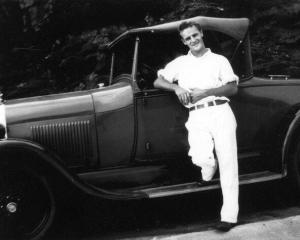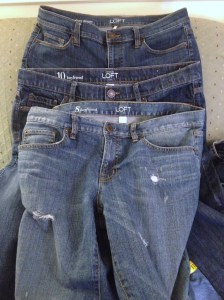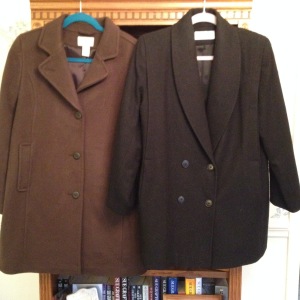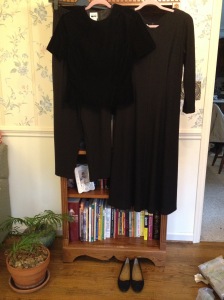Chapter One
I wasn’t going to be able to talk her out of it. My mother was determined to spend the summer in Italy. And I was going with her, whether I liked it or not. And the answer was not.
I kicked a rock down the sidewalk in front of me as I headed toward school. It was the last day of my junior year, and I was ticked. The summer between my junior and senior years of high school was supposed to be fun, carefree. Swimming. Sailing. Sunbathing. A summer job selling Italian ice outside of the aquarium with my friends Claire and Johan.
But no. We were going to Italy. Sounds wonderful, right? Wrong. We weren’t going for fun. Our trip was for my mom’s job. In a week, we’d fly to Rome, then take a train to Montepulciano.
Monte what, you ask? Whoever heard of that town? The Etruscans, that’s who. They founded it. My mother is a professor of classics, which means she spends lots of time studying ancient Romans and Greeks and the people who came before them, like the Etruscans.
“Mom!” I’d whined. “Do we have to go for the entire summer? Really?”
She’d reminded me that a summer in Italy is an experience many 16-year-old girls never have, and I should be grateful. Huh. I’m not sure why my mom thinks digging up information on people who’ve been dead and gone for thousands of years equals fun.
My mom had looked tired that day, dark circles under her normally lively blue eyes. The spring humidity made her short blonde hair curl softly around her pixie-like face, but the animation I was used to seeing there was missing. I felt guilty for being such a self-centered jerk. But I couldn’t help myself. I really, really didn’t want to go.
“Listen, Katie,” she’d said. “I understand you’re disappointed about not spending the summer with your friends. But it’s important that we go to Italy this summer.”
“Why? Why THIS summer?” I’d pouted. “Why can’t it be next summer? Or the next one? Why THIS summer?”
Let me set the record straight — I appreciate everything my mom has done for me. Both she and my dad did their best to make sure their divorce didn’t disrupt my life too much. I was ten when she and my dad split up. My dad is Italian. He’s an archaeologist, and that’s how they met — he was a visiting professor of archaeology at the College of Charleston one semester, and they fell madly in love.
And just as madly out of love 11 years later. Grown-ups. Don’t ask me to explain it, because I don’t understand it myself. Anyway, he stayed on in Charleston after the split because of me, at least until last year when he got an offer to lead a dig outside of Montepulciano. My dad grew up there, and we used to visit every summer before my grandparents died and my parents divorced.
I hadn’t been back since the summer I turned seven. And that was just fine with me. I couldn’t imagine being in Italy without my Grandmother Fiero there. I didn’t even want to think about it.
But none of that matters. My mom’s planned everything out. She’ll be doing research and I’ll be helping my dad at his archaeological dig when I’m not helping her dig through old tomes at the library. I’ll miss home. And my friends. I’ll even miss the tourists.
Claire’s parents had offered to let me spend the summer with them. Claire had started going to my school the same year my parents divorced, and she’d helped me through a lot. I spent so much time at her house and she spent so much time at mine that we were essentially family.
But my mom had said no to that, too.
I caught up with the rock and gave it a particularly vicious kick, sending it skittering into the intersection in front of me. I watched as it bounced into the gutter, stopping in front of a run-down house with a For Sale sign in the front yard. A man in a long black coat stood on the front porch. He had his hand on the doorknob, but turned as he heard the rock hit the curb. Icy blue eyes met mine for a second, then he disappeared into the house.
Why was the guy wearing a long leather coat in Charleston in June? The temperature at 8 a.m. was about 80 degrees, and it was already so humid I was sweating standing still. And still, the guy was dressed like a spy from some ancient British movie. Or Spike from Buffy the Vampire Slayer. Weird.
Just then, the light changed and I crossed quickly, eager to get to school. I forgot about the man and his strange attire as soon as I spotted Claire waiting for me in front of the high school building.
Last night, Claire had come over to help me pack for Italy. My mom and I live in an old house in on Elizabeth Street, near the harbor. It’s not South of Broad (the fancy area where everyone who’s anyone lives), but it’s still pretty cool.
Our house is one of those long, narrow, three-story houses with a hallway that runs straight down the middle from the front door all the way to the back door. Supposedly the houses were built that way so ocean breezes could blow through and cool them off during the summer. Ha. Like that really worked. Thank goodness I was born after air conditioning was invented.
“What will you need in Italy?” Claire had asked. “Isn’t Europe cooler in the summer than Charleston?”
“Northern Europe, yes,” I’d said. “But it gets plenty hot in Montepulciano. It’s just not as humid as it is here.”
We’d picked out t-shirts, shorts, jeans, and a bathing suit. I needed some new sandals, and my mom had told me to take something dressy, too, so Claire and I had made plans to go shopping this afternoon. Not that I was happy about the reason we were going.
“Hey! I want a pair of white sandals, and my mom gave me money so we can both get a pedicure this afternoon, too,” she said, bouncing on her toes. “I’d really love bright red, but my mom thinks pink would be better … what do you think?”
I smiled, taking in Claire’s energy. She was always like this — bouncy, energetic, up for anything. “I think we’d better go with pink. Maybe we can get red later this summer, once we have a tan …” I trailed off, realizing I wouldn’t be here later this summer.
“It’s okay, Katie,” Claire said, reading my mood. “You paint your toenails red in Italy and I’ll paint mine red here, and we’ll post the pictures on Instagram.”
“It won’t be the same,” I said.
“No, it won’t, but it’s just for the summer,” she said. “Just two and a half months. Ten weeks. Seventy days. But who’s counting?”
I laughed, somehow cheered by the thought that Claire was going to miss me, too.
As we entered the classroom, we were greeted by Mrs. Mills, our home room teacher. She was holding a list of student names and a red pen.
“Books not turned in will have to be found by the end of the day, or paid for,” she said in her no-nonsense voice. Mrs. Mills turned to me.
“Katherine? Do you have all of your books?”
My name is Emily Katherine, but just about everyone calls me Katie. My mom’s name is Mary Elizabeth, but everyone calls her Libby. It’s a southern nickname thing – we get not just a nickname, but one based on the middle name. To make things even more confusing, my mom and I have different last names. I’m Katie Fiero, and she’s Libby Legare, pronounced, in Charleston at least, Luh-gree. She’d gone back to her maiden name after the divorce.
Claire and I turned in our books, watching anxiously as red check marks filled all the appropriate squares. We sat down in our seats to wait as other students trickled in — some with books and some with excuses. Johan, who’d been my friend since preschool, stood in front of Mrs. Mills, his voice rising as he insisted that a book had been in his backpack the day before, and he knew he hadn’t taken it out.
“Go check your locker again, Johan,” she said. “Here. I’ll write you a hall pass.”
Johan, red-faced, stalked out of the room to look again. “I know it was in there,” he muttered to himself as he passed us.
“I wonder what he lost?” Claire whispered. I shrugged back at her, shaking my head to indicate I didn’t know.
“Hey, I need to talk to you about something,” I whispered back. “Last night after you left, I got an email from my dad. He said he wants to explain my ‘heritage’ to me, and that’s why we’re going to Italy this summer. What do you think he’s talking about?”
A strange look passed over Claire’s face, and was gone so quickly I thought I’d imagined it. But the grimness in her voice was real enough.
“Katie,” she said, taking a deep breath. “What exactly did the email say?”
“Here, I printed it out,” I replied, pulling out the piece of paper and handing it to her.
“Katie,” my dad had written, “I’m happy you’ll be spending the summer helping me at the excavation site. It’s time you learn about your heritage. Love, Dad”
Last night, I had stared at the message for a full five minutes, trying to figure out what he was talking about. What heritage? Explain what? My Italian heritage? I knew I was half Italian. Pizza, spaghetti, garlic. Dark skin, eyes and hair. We’d spent summers in Italy when I was small and my grandparents had still been alive. I spoke enough Italian to get by.
What more did I need to know? What more could there be to know?
Claire’s normally fair skin was paler than usual, but her tone was normal when she spoke.
“Maybe he’s found something related to your family at his dig,” she said, handing the printout back to me.
“Whatever,” I shrugged, shoving the email back into my book bag. I really wasn’t interested in any more ancient history, and I had no idea what the Etruscans could possibly have to do with me. Just then, Johan returned. He spoke to Mrs. Mills in a low voice, and took his seat on the other side of me. He was empty handed, and he looked upset.
“What’d you lose?” I asked him.
“A library book,” he said. “I put it in my backpack last night, but it’s not there now. And it’s a really old book, one that you’re supposed to just read in the library. Miss Bell let me take it home yesterday if I promised to return it today.”
“What’s it about?” I asked.
“History,” he said, shrugging. “I’m just doing some research.”
I stared at him.
“Research? On what?” I asked.
“Um, just some stuff,” Johan said, looking uncomfortable.
The bell rang, and I swallowed my next question as Mrs. Mills gave me her best no-nonsense glare.
As Mrs. Mills called roll, I wondered about the real reason Johan had checked out a restricted book the day before school ended. Because he hadn’t really answered my question. If he thought “just some stuff” was going to get me off his back, then he obviously hadn’t been paying attention for the past 16 years.
“Okay, students,” Mrs. Mills called out. “It’s time for the convocation. Line up and walk quietly to the gym.”
We were having an awards ceremony today for undergraduates. Seniors would be recognized at graduation on Saturday, but today, students in other grades would get their awards.
We lined up, with Claire in front and Johan behind me. As we passed the lockers, I thought I saw the hem of a long black coat disappear around the corner in front of me. Seriously? Was the weird guy in the black coat at my school now? As we reached the corner, I slowed down and looked, but the hall to my left was empty.
“Move it, K,” Johan said.
“Sorry,” I replied absently, wondering if I had imagined it or if the guy in the black coat was now wandering around our school. Was he the parent of a student? Did we have any new students? Would a new student even start on the last day of school? That was crazy. I shook my head. I must have imagined the whole thing.
The hum of excited voices echoed off the rafters and flowed around us as we settled on the bleachers in the gym. I turned toward Johan and asked him, “So why’d you really check out that book?”
“I just wanted to get a head start on my senior thesis,” he said.
“Seriously, Johan. How much research could you do when you only had the book for 24 hours?”
“Well,” he squirmed, obviously not wanting to answer. I narrowed my eyes at him. I had all day. Or at least the next hour. He was trapped on the bleachers with nowhere to go.
“Um. Okay. I noticed that in every culture, there are stories of vampires, werewolves, and other monsters. I thought it would be interesting to dig a little and see where these myths come from. And why there are similar stories all over the world, stories from long before there were any telephones or computers . It’s not like people in the 12th century were emailing back and forth or anything.”
“Johan,” I said. “My term paper this year was on Celtic myths. I can give you a copy if you want. Plus, I’m going to Italy this summer to help my dad on a dig. I could probably help you out with some research while I’m there.”
“That’s part of the reason …” he paused as the principal called Claire’s name.
We were silent as Claire squeezed past us to go receive her award.
“Part of the reason what,” I said.
“Katie, there’s something I really need to talk to you about,” Johan said.
“Emily Katherine Fiero.”
It was my turn to head down to the floor. I smiled at Dr. Puckett, shook his hand and took my award.
“Johan Edmund Meyer.”
I passed Johan as I headed back up the bleachers and he headed toward the front. When he returned, he sat down and looked at me.
“What?” I asked, taking in the look on his face. “Are you surprised I got the English award? You’ve got to let me beat you at something.”
“No,” he said. “You deserve the English award. Your Celtic myths paper was really good. It’s Montepulciano. It’s not safe.”
“Johan,” I said. “That’s ridiculous. It’s a dusty Italian town where nothing ever happens.”
“Katie,” he said, running his hand through his light brown hair, his brows drawn down over his sea green eyes. “You can’t go.”
“Believe me, I’ve tried to talk my mom out of it. Claire and her parents even said I could spend the summer with them. But my mom is determined. She wants me to spend the summer with my dad, bonding, since I haven’t seen him in so long. So I’m going. But I’ll keep in touch with you by Facebook and Skype,” I said brightly, wondering about his sudden interest in my summer plans.
Really, it’s not like we’d ever been anything other than friends. Although, now that I thought about it, this would be the first summer since we were born that we hadn’t celebrated our birthdays together. Ah, the benefits of having birthdays a week apart and mothers who were best friends.
“So … are you worried about turning 17 without me? Afraid it won’t happen if I’m not here?” I asked teasingly.
“No, it’s not that,” he said, turning red. “It’s … Oh, never mind.”
Johan turned back toward the front of the gym, and I realized the last award had been handed out. As we stood and headed down the bleachers, I tried to figure out what really had Johan so upset. I was pretty sure spending a boring summer helping my parents with their work gigs didn’t deserve that kind of concern.






